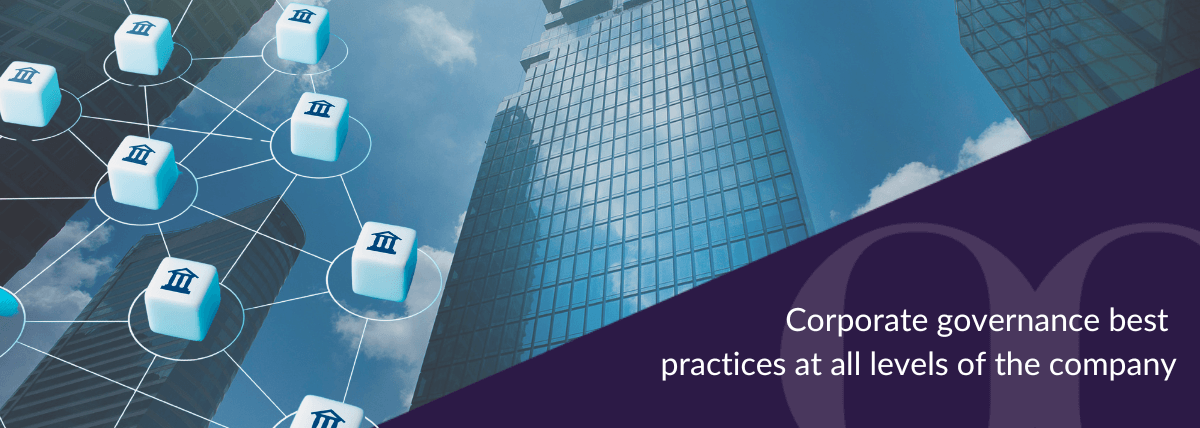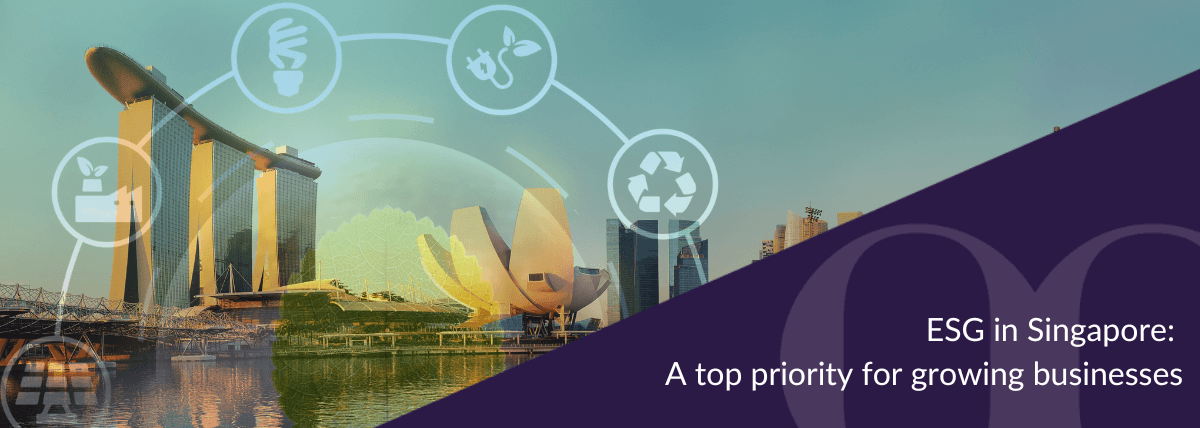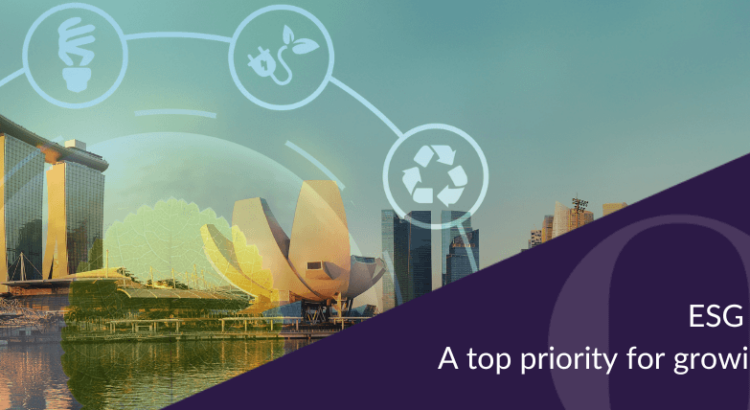With environmental, social and governance (ESG) issues now top of mind for investors, consumers and communities around the world, businesses are quickly embracing sustainable practices to secure their long-term success.
Many governments are committing to net zero targets in an effort to address climate risk, meaning businesses must now take action to minimise their carbon footprint and help deliver these targets. In Singapore, ESG expectations among stakeholders are prompting businesses to start tracking their emissions to meet demands for transparency and traceability in supply chain management.
Further, climate reporting is now mandatory for public Singapore companies, and the Singapore stock exchange (SGX) has released a list of 27 recommended core ESG metrics for companies to report against. Many forward-thinking private companies are choosing to use these metrics too.
In this article, we speak to Tina Thomas, Head of ESG for BoardRoom, about the key ESG issues impacting decision-making in business today and the top strategies Singaporean companies can use to safeguard their future.
What is ESG risk?
ESG practices should now be ingrained into companies’ operations and risk management plans. According to Tina, listed companies that ignore ESG matters may encounter major regulatory compliance problems (potentially resulting in legal action or loss of their licence to operate) and experience a loss of customers. For private companies, ESG disclosure is not yet mandatory, but it must be part of their long-term strategy. “Customers now have the choice of whether to buy from a sustainable company, so there’s a market risk if companies ignore ESG matters,” she says. Specific ESG risks vary between businesses depending on the nature of their operations.

Some risks now critical for many businesses include:
1. Environmental risk
2. Social risk
Issues that can drive business risk include worker rights, gender and racial equality, child labour and environmental effects on people’s health. Companies should also support employee wellbeing and provide valuable training opportunities. This helps attract and retain talent and offers a range of flow-on benefits (e.g., better productivity and efficiency) for improved business outcomes.
3. Governance risk
Good governance is essential for ESG success as it not only guarantees that businesses operate safely and fairly within their respective sectors, but also ensures responsible practices in areas such as borrowing, internal risk management, anti-money laundering (AML), and compliance with relevant acts and regulations. A lack of good governance will not go unnoticed by stakeholders.
What ESG opportunities can I explore?
In addition to mitigating ESG risk, Singaporean businesses can also build their resilience by being first movers in the ESG space and making use of new opportunities the market poses for companies.
“If a company does not understand the ESG landscape, they might miss all the opportunities available,” Tina says. “For example, some companies are introducing plant-based products to capture new clients. Or there may be opportunities for expansion, new technology or market streams.”
From a social perspective, a strong corporate governance framework is crucial for businesses as it empowers them to establish and enforce ethical standards, ensuring fair work conditions and promoting transparency across their supply chains to responsibly monitor and protect the rights of workers. This strategy benefits not only your business but society at large.

What are the benefits of sustainable practices?
Sustainable practices can benefit Singaporean companies in various ways, depending on the nature of the business and its industry.
Some prominent practices include:
Initiatives like these have additional benefits, including improved brand reputation, more robust regulatory compliance and reduced policy costs (e.g. carbon tax).
How a diverse workforce promotes social responsibility
In today’s rapidly changing world, the benefits of sustainable practices and diversity and inclusion are more interconnected than ever before. Embracing a diverse workforce and fostering an inclusive environment presents a valuable opportunity for businesses to perform better and be more innovative.
“Without diversity, people think alike and have the same or similar views, so there’s little to no creativity,” Tina explains.
Diversity and Inclusion (D&I) is a positive social factor for employees, while it can be a governance strength for board members.
“The SGX emphasises that the boards have to be diverse – this is mainly to champion the idea that having the right mix of individuals with the right education, background and experience level is important for ensuring a business is well run,” Tina says.
Furthermore, embracing D&I helps to create an open workplace culture that is accepting of differences and more adaptable to change in an uncertain world.
How does ESG impact business decisions?
ESG is now shaping business decisions to a significant degree. Whether a company is buying or investing in a business or improving parts of its own group, ESG considerations are now a standard part of commercial and financial due diligence processes.
Primary ESG considerations commonly include:
- climate change and its potential impacts on the business (e.g. the threat of natural disasters and drought);
- resource depletion and the limits it may place on resource consumption within a business’ operations;
- possibilities for emissions reduction and the conservation of resources (like water);
- the potential to adopt a circular business model that enables reuse and recycling to maximise resource efficiency and minimise waste; and
- the importance of good corporate governance, a hallmark of well-run companies that builds trust among consumers and investors while reducing compliance risk.
To ensure business decisions consider key ESG factors, leaders should develop a comprehensive ESG strategy and engage with stakeholders to promote open dialogue. “They also need to invest in sustainable business practices and monitor and report on their progress,” Tina says.

How do I promote strong corporate governance?
An effective way to drive good governance in your organisation is by ensuring senior management and board members take ownership of ESG performance.
“These leaders play a key role in setting the tone from the top in terms of following governance standards and responding to ESG risks and opportunities,” Tina says.
It is also essential for leaders to fully understand ESG, as this will empower them to make strategic decisions around resource management and risk mitigation and successfully lead their business through ESG transformation.
What support is available for ESG in Singapore?
When it comes to proactively responding to ESG risks and opportunities, the assistance of an experienced ESG services provider can be invaluable.
BoardRoom’s ESG Singapore team helps businesses throughout the Asia-Pacific region translate their ESG efforts into valuable competitive advantages, including:
- a steadier investor base;
- reduced cost of capital;
- increased access to financing;
- higher staff engagement; and
- stronger customer loyalty.
As a globally minded firm with offices throughout Asia Pacific, we leverage the diversity of our teams to deliver high-quality, carefully tailored ESG solutions.

BoardRoom’s holistic ESG services
The assistance BoardRoom provides as part of our end-to-end ESG service includes (but is not limited to):
- undertaking a materiality assessment to identify which ESG issues your company should respond to and report on;
- conducting a gap analysis to evaluate compliance with stakeholder expectations;
- gathering valuable ESG data with our innovative, easy-to-use ESG Access platform; and
- setting data-driven key performance indicators and targets for ESG performance.
We provide full ESG life-cycle management for all types of businesses, from growing SMEs new to ESG to large multinational corporations wanting to take their sustainability practices to the next level.
Wherever you are on your ESG journey, we are ready to assist.
Elevated ESG reporting
Our ESG professionals can also help you enhance your ESG performance in the eyes of key stakeholder groups through robust, efficient sustainability reporting.
Public and private companies alike should adhere to globally recognised frameworks to ensure their sustainability reports meet stakeholder expectations.
Publicly listed companies must now disclose their ESG management in line with the Task Force on Climate-Related Financial Disclosures (TCFD) recommendations. Many businesses also follow the Global Reporting Initiative Standards in their reporting.
With our guidance, you can confidently use the best ESG frameworks and methodology for your business.
Realise your ESG goals
Contemporary businesses must ensure they are effectively responding to ESG risks and opportunities if they are to thrive within Singapore, Asia and beyond. BoardRoom’s ESG experts can help implement a customised ESG strategy for your organisation, promoting ongoing sustainability and profitability.
We offer a full suite of complementary corporate services in addition to ESG support, including company secretarial, company incorporation, accounting and bookkeeping, payroll, share registry, employee stock option plans, XBRL conversion and filing, tax advisory and filing and international accounting and tax. This means you can easily combine services to ensure your business is fully supported to achieve its expansion goals.
Contact us to find out more about elevating ESG in Singapore.
Contact BoardRoom for more information:
Related Business Insights
-

08 Jul 2024
Your Guide to Corporate Tax Filing in Singapore
Learn to navigate corporate tax filing in Singapore effectively and ensure timely, compliant submissions with our c …
READ MORE -

14 Jun 2024
Comprehensive Guide to XBRL Filing Requirement in Singapore
Explore the essentials of XBRL filing in Singapore, covering mandatory requirements, benefits, preparation steps, a …
READ MORE -

11 Jun 2024
Corporate governance best practices at all levels of the company
Corporate governance goes beyond compliance, shaping the fabric of an organisation. Discover the corporate governan …
READ MORE


